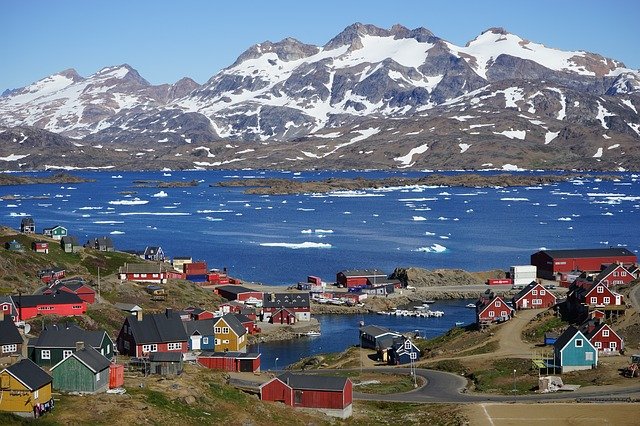National Snow and Ice Data Center (NSIDC) warns as Greenland Ice Sheet mass loss accelerates
- November 2, 2020
- Posted by: Elaine Coles
- Category: Environmental, Research Papers, Arctic & Antarctica, North America

Ice loss from the Greenland Ice Sheet has accelerated significantly over the past two decades, transforming the shape of the ice sheet edge and therefore coastal Greenland, according to scientific research led by Twila Moon, deputy lead scientist of the National Snow and Ice Data Center (NSIDC) in the USA.
The changes to the ice sheet could have far-reaching impacts on ecosystems and communities, as the flow of water under the ice sheet as well as nutrient and sediment flow are altered.
Results of the research were published on October 27 in the American Geophysical Union’s Journal of Geophysical Research: Earth Surface.
“The speed of ice loss in Greenland is stunning,” said Moon. “We can now see many signs of a transformed landscape from space. And as the ice sheet edge responds to rapid ice loss, the character and behavior of the system as a whole is changing, with the potential to influence ecosystems and people who depend on them.”
The researchers compiled data from NASA, the United States Geological Survey, and other satellites from 1985 to 2015 to compare ice edge position, ice sheet surface elevation, and glacier flow over three decades. Advancements in satellite technology allowed them to observe the changes to the ice sheet in much greater detail than was possible in the past.
Much of the data used was from the NASA Inter-mission Time Series of Land Ice Velocity and Elevation (ITS_LIVE) project, which facilitates ice sheet, ice shelf, and glacier research by providing a global record of land ice velocity and elevation derived from nearly three decades of satellite observations.
Key findings from the research relate to widespread ice edge retreat.
While there is a range of behavior among glaciers across the ice sheet, there is a noticeable lack of sustained ocean-connected glacier advance. Out of 225 ocean-connected glaciers that were measured, none have substantially advanced while 200 have retreated, particularly since 2000.
As the researchers examined changes in the Greenland Ice Sheet, they found that zones of fast glacier flow are narrowing, ice is being rerouted, and in some cases, the flow of new ice to glaciers is slowed, stranding glaciers in place.
The processes could have a variety of downstream impacts, such as altering how water moves under the ice sheet, which could affect the availability of water to communities and animals, altering where nutrients and sediment enter the ocean, exposing new land areas, opening new fjord waters, and altering ecosystems and physical landscapes.
“As the Arctic ocean and atmosphere warm, we can clearly see the flow of ice into the ocean accelerate and the ice edge retreat,” said Alex Gardner, a research scientist at NASA’s Jet Propulsion Laboratory and co-author of the study. “When we look more closely, however, we can see the complexity of how individual glaciers respond, owing to differences in the properties of the ocean water that reach the glacier front, the bedrock and till that lie below, and in how meltwater runoff is routed beneath. Understanding the complexity of individual glacier response is critical to improving projections of ice sheet change and the associated sea level rise that will arrive at our shores.”
The researchers hope that the information from the study will be used to project future changes in ice sheet dynamics, ice loss, and local to regional impacts as global warming continues to reshape the cryosphere.
In addition to NSIDC and NASA, scientists from the University at Buffalo and the University of Alaska Fairbanks also collaborated on the study.
